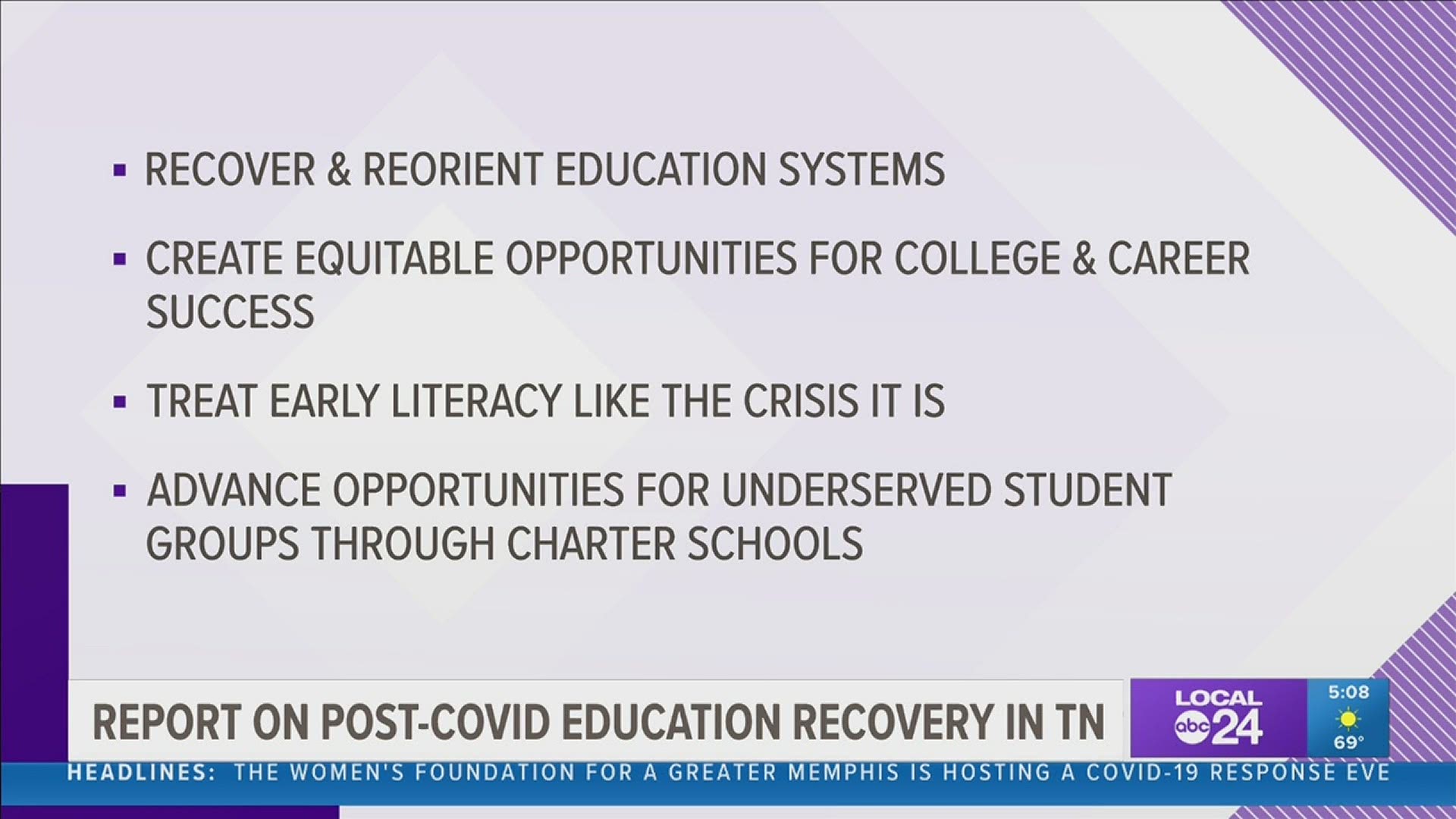NASHVILLE, Tenn — The State Collaborative on Reforming Education (SCORE) today released Renewing Our Pledge: 2021 State Of Education In Tennessee, a new report that outlines a COVID-19 recovery plan for Tennessee’s K-12 and higher education systems.
This is the 11th time SCORE has issued its annual report on the state of education in Tennessee. While the reports typically have outlined progress for students over the past year and identified priorities to advance student outcomes in the year ahead, this year’s report also examines how COVID-19 has worsened existing problems and added significant new ones.
“This year demands more of SCORE, of our state, and of you,” SCORE founder Senator Bill Frist and SCORE President and CEO David Mansouri said in a joint opening statement to the report. “Tennessee must compile a clear, detailed student-focused recovery plan for an education system badly battered by the pandemic.”
The 2021 State Of Education In Tennessee report outlines four priority areas:
- Recover and reorient education systems. Noting that the pandemic disruptions to learning have likely worsened disparities faced by low-income, Black, and Latino students, the report urges the state to set a clear vision for education equity and create a COVID-19 recovery plan that moves Tennessee toward that vision. The report also calls for administering statewide assessment and using the data to guide distribution of resources to provide more support for struggling students. To address the learning crisis that state education systems face, the report says Tennessee must protect education funding and invest resources to close opportunity gaps heightened by the pandemic.
- Create equitable opportunities for college and career success. Credential completion rates before the pandemic are evidence that higher education is not serving all students. Based on current trends, only 10 percent of low-income high school freshmen will earn a postsecondary credential after high school. The report recommends giving communities and institutions easy access to state data so that they can target local solutions for retention and completion. The report also calls for an investment in support programs — such as summer bridge and dedicated advisers — to close equity gaps and for policies that better align K-12 and postsecondary education.
- Treat early literacy like the crisis it is. Early literacy is critical for student success in college and career, but the report estimates a half million Tennessee students completed third grade in the last decade without a solid foundation in reading. Following the disappointment that literacy legislation was not passed in 2020 despite widespread agreement about what needed to be done, this report again calls for new literacy policies. The policies should help all districts and classrooms adopt high-quality instructional materials and support educators during their implementation; prioritize both foundational skills instruction and knowledge building; and ensure that educator preparation programs are preparing teacher candidates in the Science of Reading.
- Advance opportunities for underserved student groups through charter schools. The overwhelming majority of Tennessee public charter school students are Black or Latino and come from economically disadvantaged backgrounds. The report urges the state to advance education equity by creating the environment that expands high-quality charter school opportunities. The report endorses the creation of a permanent solution for facilities funding for high-quality public charter schools, the establishment of stronger charter authorizer accountability, and incentivization for the expansion and replication of high-quality charter schools.
“Today, we are calling for a strong new plan to help us not only recover from COVID-19, but to serve as a springboard for the next 10 years of academic gains and expanded opportunities for all students,” Mansouri said. “We need to double the number of third-graders reading on grade level, double the community college completion rate for Black and Latino students, double the number of new high school graduates who earn associate degrees in three years or bachelor’s degrees in six years — and we need to do all of this by the end of the decade.”
SCORE presented the report findings and priorities to educators, policymakers, and community and civic leaders during a virtual event. In addition to Frist and Mansouri, speakers during the event included SCORE Chief K-12 Impact Officer Dr. Sharon Roberts; SCORE Chief Postsecondary Impact Officer Dr. Russ Wigginton; Tennessee House Speaker Cameron Sexton; Hamilton County Schools Superintendent Dr. Bryan Johnson; Dr. Ellen McIntyre, dean of the College of Education, Health and Human Sciences at the University of Tennessee, Knoxville; Memphis Education Fund CEO Terence Patterson; Janet Ayers, president of The Ayers Foundation; and college student Timari Ray.
The State Collaborative on Reforming Education (SCORE) works collaboratively with state, local and national partners to advance policies and practices for greater student success across Tennessee. We are an independent, nonprofit and nonpartisan advocacy and research institution, founded in 2009 by Senator Bill Frist, M.D., former US Senate Majority Leader. SCORE measures success by the academic growth and achievement of Tennessee’s students. Learn more at tnscore.org.


